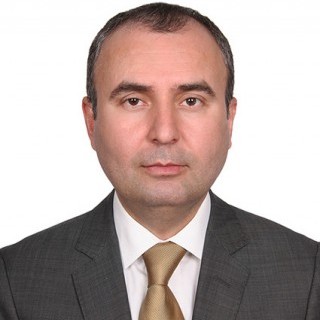Key events in EMEA and Latam next week
It's a data-packed week in EMEA. Russian CPI could signal a rate cut in September while in Romania, the central bank is likely to stay on hold
Romania: Expect a hold
We expect the National Bank of Romania (NBR) to stay on hold at 2.50% on Monday and maintain its reference to “strict control over money market liquidity”. If inflation prints below 2% a couple more times we could see a return to local policy easing, with the deposit facility becoming the de-facto policy rate.
Hungary: A ray of sunshine among the clouds
Despite the rather gloomy outlook in manufacturing globally, we expect Hungary to remain a bright spot. Although we expect a seasonal drop in June, due to a low base, we expect year-on-year industrial production growth to accelerate. This view is supported by the still optimistic PMI reading, which suggests further expansion and previous strong growth in new orders. While industry is important from an activity point of view, the highlight of the week will be the CPI data release. We expect a mild acceleration in inflation mainly due to services and an increase in tobacco prices due to the change in excise duty. The latter means that core inflation ex-tax might remain on a decelerating path.
Russia: Downward inflation to push for a cut in September
The weekly deflation seen in the last week of July (the first time for Russia in two years) supports our expectations of a further slowdown in CPI from 4.7% YoY in June to 4.6% YoY in July, or even slightly lower. The main driver seems to be the favourable situation on the global and local agricultural market. We continue to expect a further gradual CPI deceleration to 4.0% YoY by year-end, below the central bank's target range of 4.2-4.7% (see here for more details). The downward CPI trend should prompt the Bank of Russia (CBR) to make another 25 basis point rate cut to 7.00% in September, accompanied by an improvement in the year-end forecast.
At the same time, we doubt the CBR will be more aggressive, especially in the mid-term, as the slowdown in CPI is driven mainly by cost factors, rather than weak local demand. In fact, GDP growth should pick up somewhat from 0.5% YoY in 1Q19 to 0.8% YoY in 2Q19, and a further pick up is possible in 2H19 thanks to the planned acceleration in budget spending on National Projects, mainly reflecting CAPEX on infrastructure.
Czech Republic: A slight downside bias?
While industrial production surprised on the upside in April and May, the June figure will be more negative, driven by the calendar bias (one less day working day), but also by a year-on-year fall in car production. Retail sales might slightly improve after a somewhat weaker May driven by some one-off factors, but new car registrations fell by 15.5% in June according to preliminary figures, so retail sales including the car segment will be weak again. The unemployment rate is likely to increase slightly, which is the usual seasonal pattern during summer months.
Turkey: A pause in the inflation downtrend
Following a stronger than expected downtrend in inflation, there will be a pause, as electricity price hikes and other administrative price adjustments, as well as the removal of tax incentives on automobiles and some durable consumer goods, will likely push annual inflation to 16.9% (1.6% MoM) in July from 15.7% a month ago. Inflation will drop very rapidly in September and reverse thereafter because of large base effects.
EMEA and Latam Economic Calendar

Download
Download article
2 August 2019
Our view on next week’s key events This bundle contains 3 ArticlesThis publication has been prepared by ING solely for information purposes irrespective of a particular user's means, financial situation or investment objectives. The information does not constitute investment recommendation, and nor is it investment, legal or tax advice or an offer or solicitation to purchase or sell any financial instrument. Read more



